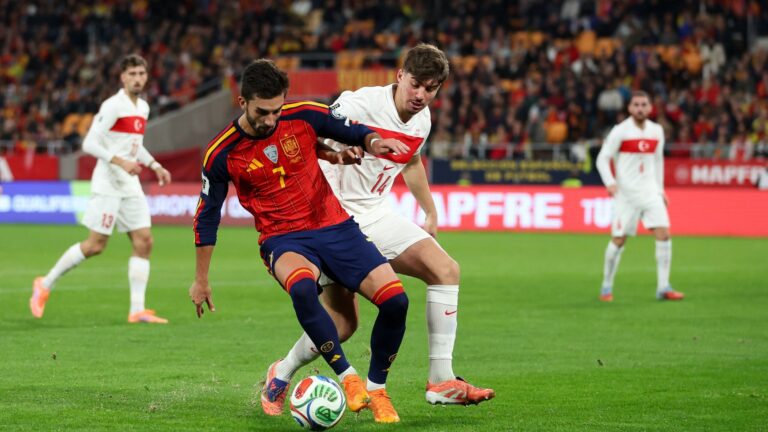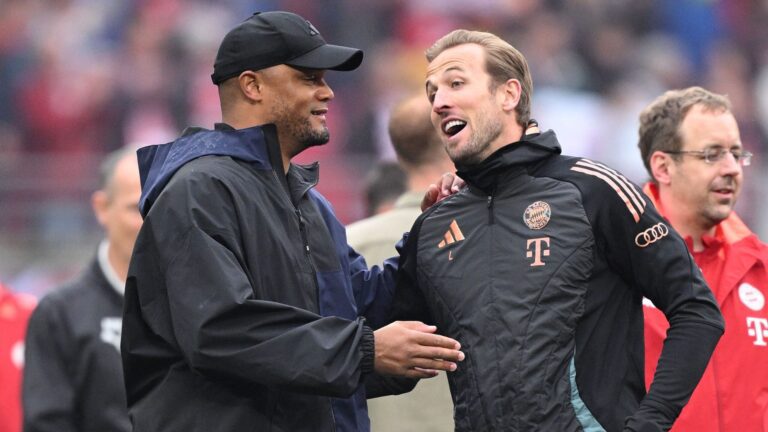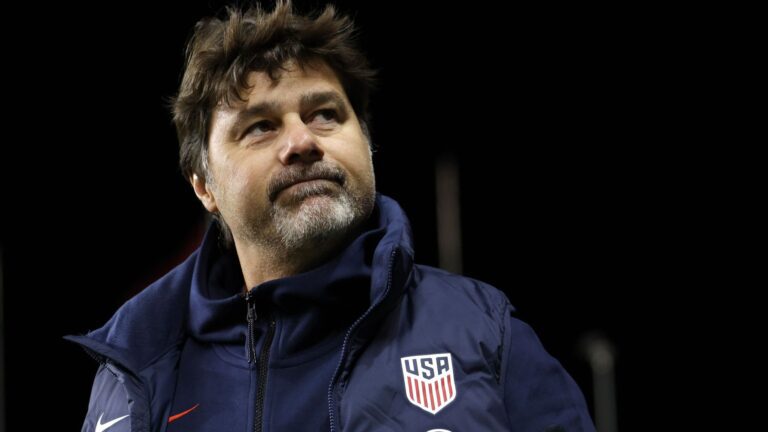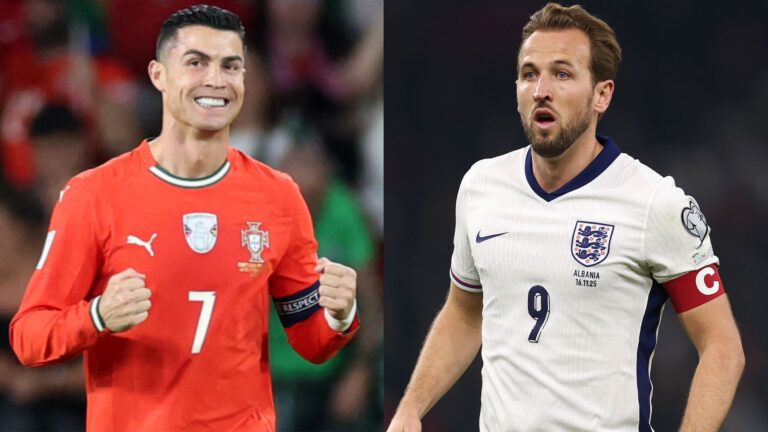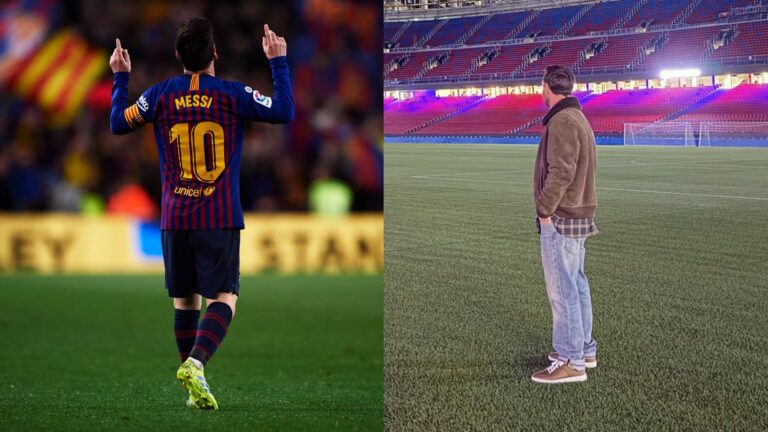Unpacking Cristiano Ronaldo’s Red Card Saga
Cristiano Ronaldo and his unexpected dismissal during a heated encounter have sparked widespread discussion among football enthusiasts. In a match that highlighted the pressures of international play, the Portuguese icon faced his first career suspension, leaving fans and analysts alike pondering the events at the Aviva Stadium.

The Build-Up to the Clash
During what should have been a milestone 226th appearance for Portugal, Ronaldo encountered a challenging atmosphere that ultimately shortened his time on the pitch. This legendary player, who has proudly donned his national jersey for over two decades, now faces a mandatory break from action, underscoring the intense emotions that can surface in high-stakes games.
Escalating Tensions on the Field
Frustration mounted for Ronaldo as Portugal struggled against their Irish rivals. Strikes from an opposing forward put his team at a disadvantage by halftime, and shortly after the break, the squad was left shorthanded, amplifying the mounting pressure and leading to a pivotal moment of outburst.
Ronaldo’s Outburst and Its Aftermath
After taunting opponents and spectators with remarks urging them to show more emotion, Ronaldo’s composure shattered in the face of ongoing provocations. Despite his earlier commitment to remain unfazed by any hostility, interactions with the audience and defenders pushed him over the edge, resulting in a regrettable reaction.
The Key Incident Involving a Rival Defender
Ronaldo’s clash with a prominent Ipswich player escalated to the point of physical retaliation, an episode that escaped the initial notice of the referees. Nevertheless, technology intervened, prompting officials to issue a dismissal that left little room for dispute, as replays clearly showed an intentional strike.
Ronaldo had minimal grounds for protest, given the evident swing of his arm that caused the defender to collapse dramatically. The home crowd relished the moment, offering no mercy to the acclaimed Portuguese star as he exited towards the locker room amid jeers.
Looking for smarter football bets? Get expert previews, data-driven predictions u0026amp; winning insights with BALLGM Tips on Telegram. Join our growing community now!
Reactions from the Coaching Staff
Portugal’s manager expressed reservations about the severity of the call, hinting that prior statements from the Irish coach regarding Ronaldo’s sway over officials might have influenced the outcome. He argued that the veteran player’s passion for the team should be acknowledged, especially considering his spotless disciplinary record over 226 matches.
Analyzing the Manager’s Perspective
In his comments, the coach noted: “This dismissal involves a leader who’s avoided ejection throughout his career – that’s noteworthy – and in this instance, it felt overly severe since his focus is always on the squad. For nearly an hour, he endured constant physical challenges in the penalty area, and when attempting to break free, the movement appeared more exaggerated than it truly was. It’s not purely an elbow; it’s a full motion, but angles can mislead. We stand by the decision, though.”
Potential Bias in Assessments
He added that remarks from the opposing coach about referee influence, combined with the defender’s theatrical fall, left a sour note. Yet, from an impartial view, Ronaldo’s actions aligned with rules on aggressive behavior, compelling the match and review officials to enforce the penalty without hesitation.
Future Implications for Ronaldo and Portugal
Consequently, Ronaldo is set to miss at least one upcoming fixture, as Portugal continues their push for direct entry into the 2026 World Cup. Their next challenge is a home game against Armenia, where his absence could prove significant.
The Disciplinary Outlook
A review panel will decide the full extent of the punishment, with possibilities extending to a three-game ban that might sideline him during the early stages of the tournament next year. At 41 years old and playing for Al-Nassr, Ronaldo has openly stated that this will be his swan song in the World Cup, making every match crucial.
The Incident Breakdown
In the world of football, incidents like Cristiano Ronaldo’s red card against Dara O’Shea have sparked intense debates among fans and analysts alike. This particular event, involving an elbow incident and a taunting gesture, was scrutinized through video evidence, shedding light on the high-stakes nature of professional matches. Understanding the details helps fans grasp how such moments can influence player reputations and game outcomes in football reviews.
What Led to the Red Card
During the match, tensions escalated quickly, leading to Cristiano Ronaldo’s red card being issued. The elbow incident occurred in a heated exchange where physical contact played a pivotal role. Ronaldo, known for his aggressive playing style, appeared to make contact with Dara O’Shea’s face or upper body, which was later confirmed by multiple camera angles as intentional or reckless.
- Key player positions: Ronaldo was positioned near O’Shea during a defensive scramble, making the elbow contact more pronounced.
- Match context: This happened in the latter stages of the game, potentially when frustration from both teams was at its peak, highlighting common themes in football red card incidents.
- Initial observations: Eyewitness accounts from commentators noted that the elbow seemed deliberate, aligning with video evidence that later surfaced.
The Elbow Incident in Detail
The elbow incident has been a focal point in discussions around Cristiano Ronaldo red card controversies. Video footage clearly showed Ronaldo swinging his arm backward, making contact with O’Shea. This wasn’t just a brush; it was forceful enough to cause O’Shea to stagger, prompting immediate reactions from referees and players.
- Impact on O’Shea: Dara O’Shea reported feeling disoriented, which raised concerns about potential injuries in football matches involving stars like Ronaldo.
- Referee’s immediate response: The on-field official wasted no time in showing a red card, emphasizing the severity of elbow incidents in modern football rules.
- Fan perspectives: Many supporters debated whether this was a heat-of-the-moment action or a calculated move, drawing parallels to past Ronaldo incidents.
Video Evidence Analysis
Video evidence has become a game-changer in reviewing football red card decisions, and in Ronaldo’s case, it provided undeniable proof of the elbow incident and taunting gesture. High-definition replays from multiple angles left little room for doubt, making this a prime example of how technology enhances transparency in sports.
Breaking Down the Footage
Slow-motion replays of the video evidence confirmed the elbow contact as the primary trigger for the red card. Experts analyzed frames where Ronaldo’s arm extended toward O’Shea, capturing the exact moment of impact.
- Frame-by-frame breakdown: In one key frame, Ronaldo’s elbow is seen making direct contact, followed by O’Shea’s reaction, which included a grimace and loss of balance.
- Additional angles: Overhead and sideline cameras corroborated the incident, showing no obstruction and making it clear this wasn’t an accidental bump.
- Taunting gesture follow-up: Right after the elbow, video captured Ronaldo making a gesture toward O’Shea, interpreted as taunting, which further justified the red card decision in football reviews.
Referee’s Decision and Appeals Process
Referees in football often face scrutiny for red card rulings, and Ronaldo’s case was no exception. The decision process involved reviewing video evidence post-match, which upheld the initial call and highlighted the importance of fair play.
Initial Red Card Ruling
The referee’s call was swift, based on real-time observations of the elbow incident and taunting gesture. This decision aligned with football association guidelines that prioritize player safety and sportsmanship.
- Rule violations: Under FIFA rules, an elbow to an opponent can lead to a straight red card if deemed violent, especially when combined with taunting.
- VAR involvement: Video Assistant Referee (VAR) technology played a crucial role, reviewing the footage and confirming the call without overturning it.
- Consequences for the team: Ronaldo’s dismissal affected his team’s strategy, underscoring how red card incidents can shift match dynamics.
Player and Coach Reactions
Reactions from players and coaches added layers to the Cristiano Ronaldo red card story. O’Shea expressed disappointment but maintained professionalism, while Ronaldo’s camp appealed the decision.
- O’Shea’s viewpoint: In post-match interviews, O’Shea described the incident as unnecessary, emphasizing the need for respect in football.
- Ronaldo’s response: Ronaldo later addressed the media, claiming the elbow was unintentional, but the taunting gesture was harder to defend.
- Broader implications: Coaches discussed how such events could impact future games, with many calling for stricter enforcement of rules around taunting and physical play.
Implications for Ronaldo’s Career and Football Rules
Cristiano Ronaldo’s red card incident has broader ramifications for his career, including potential suspensions and public image concerns. This event also prompts discussions on evolving football rules to prevent similar occurrences.
Career Setbacks from the Red Card
For a player like Ronaldo, whose career is filled with highlights, this red card represents a setback. Video evidence of the elbow and taunting has fueled debates on his legacy.
- Suspension details: Ronaldo faced a multi-game ban, affecting his team’s performance and giving fans insight into the personal toll of red card decisions.
- Public perception: Social media buzz around the incident highlighted how video evidence can influence fan opinions on stars involved in football controversies.
- Long-term effects: Analysts suggest this could lead Ronaldo to adopt a more cautious style, balancing his aggressive play with rule compliance.
Evolving Rules in Football
Football governing bodies are using cases like this to refine rules, particularly around video evidence and player conduct.
- VAR enhancements: Future matches may see improved VAR systems for quicker reviews of elbow incidents and taunting.
- Player education: Leagues are pushing for training programs to address taunting gestures, aiming to reduce red card frequency.
- Comparative cases: Looking at similar incidents involving other players provides context, showing how Ronaldo’s situation fits into broader trends in professional football.
This review of Cristiano Ronaldo’s red card incident not only clarifies the events through video evidence but also offers valuable lessons for fans and players alike, emphasizing the role of technology in ensuring fairness in the sport.


